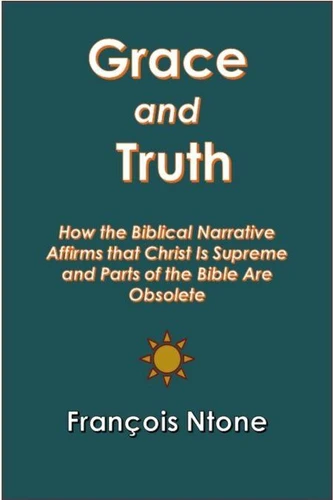Grace and Truth: How the Biblical Narrative Affirms that Christ is Supreme and Parts of the Bible Are Obsolete
Par :Formats :
Disponible dans votre compte client Decitre ou Furet du Nord dès validation de votre commande. Le format ePub est :
- Compatible avec une lecture sur My Vivlio (smartphone, tablette, ordinateur)
- Compatible avec une lecture sur liseuses Vivlio
- Pour les liseuses autres que Vivlio, vous devez utiliser le logiciel Adobe Digital Edition. Non compatible avec la lecture sur les liseuses Kindle, Remarkable et Sony
 , qui est-ce ?
, qui est-ce ?Notre partenaire de plateforme de lecture numérique où vous retrouverez l'ensemble de vos ebooks gratuitement
Pour en savoir plus sur nos ebooks, consultez notre aide en ligne ici
- FormatePub
- ISBN978-1-393-11148-1
- EAN9781393111481
- Date de parution07/02/2021
- Protection num.pas de protection
- Infos supplémentairesepub
- ÉditeurRelay Publishing
Résumé
In this book, the author follows the biblical narrative from Adam to Christ and his apostles while tracking the flow of ideas on matters of theology and ethics. The internal debates and evolving beliefs on such matters are highlighted. Readers develop an awareness of the fragmented and incomplete understanding of the divine will among God's people in the pre-Christian era. The narrative points to Christ as God's true representative and the ultimate teacher. It also unambiguously leads to the conclusion that parts of the Bible are made obsolete by his teaching. This conclusion is in conflict with the assumption of biblical inerrancy, which relies on unconvincing biblical evidence, but has led many Christians to the belief that all parts of the Bible are equally relevant. Such a belief has created confusion among Christians and non-Christians regarding biblical morality. This study rigorously shows that Christianity must be Christ-centered rather than Bible-centered, a fact that remains widely misunderstood today.
In this book, the author follows the biblical narrative from Adam to Christ and his apostles while tracking the flow of ideas on matters of theology and ethics. The internal debates and evolving beliefs on such matters are highlighted. Readers develop an awareness of the fragmented and incomplete understanding of the divine will among God's people in the pre-Christian era. The narrative points to Christ as God's true representative and the ultimate teacher. It also unambiguously leads to the conclusion that parts of the Bible are made obsolete by his teaching. This conclusion is in conflict with the assumption of biblical inerrancy, which relies on unconvincing biblical evidence, but has led many Christians to the belief that all parts of the Bible are equally relevant. Such a belief has created confusion among Christians and non-Christians regarding biblical morality. This study rigorously shows that Christianity must be Christ-centered rather than Bible-centered, a fact that remains widely misunderstood today.



